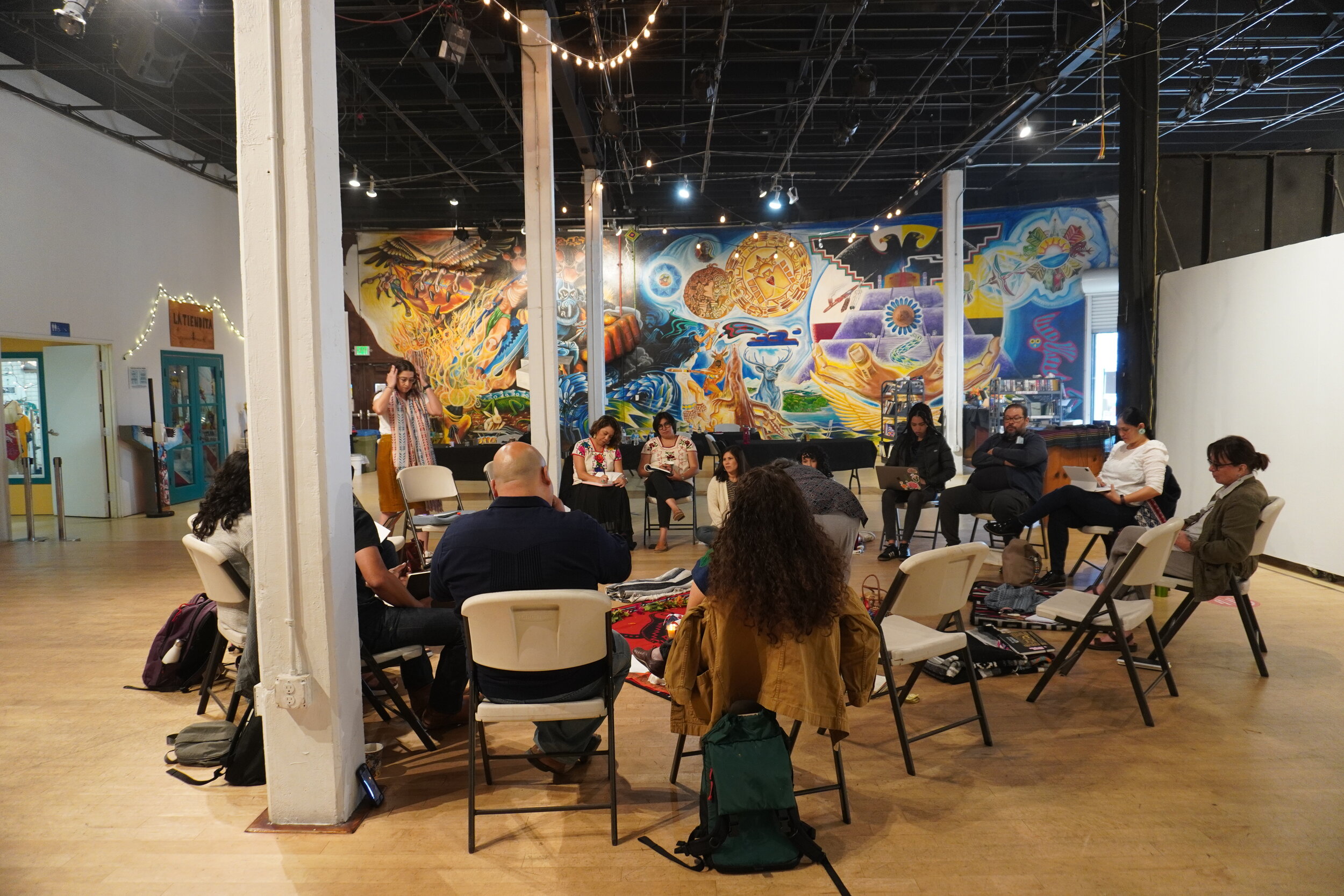“We remain beholden to our teachers from the North — the Lakota, the Dineh, the Hopi, the Winnemem Wintu, the Coastal Chumash and many others. In the same way, we try to receive all those who come to us to learn and know.”
- Celia Herrera Rodríguez”
Xicana[x] Indigenous Values: Encuentros, Convenings and Conversations is a transnational intra/intercultural exploration of Xicana[x], (Afro)Latina[x], and Indigenous ancestral and relational knowledge and living ethical practices. Our work focuses on uncovering, examining, and deepening our understanding of Xicana[x] Indigenous values for the people of California.
This public program hosted by Las Maestras Center for Xicana[x] Indigenous Thought, Art and Social Praxis at UC Santa Barbara (LMC) proposes an approach that blends the arts and humanities by bringing artists, activists, scholars, students, and Indigenous ceremonial and community leaders together for a series of intergenerational conversations and experiences. This series of public programs are designed to examine our daily practice, seeking insights into the principles, perspectives and aesthetics of Chicano/as and mapping their place in our contemporary life. We are listening to stories of the quotidian and comparing contemporary North American Indigenous daily practice and Xicana[x] practice as a continuous line of culture.
Xicana[x] Indigenous Values
“Tentlalia Taxcayollotl”
We gather collectively in order to open a dialogue of the heart moved into action.
“Bringing Elders and community together, the Chicana[x] Indigenous Values encuentros aim to understand the belief systems inherited and learned among Native people of Turtle Island and Chicanos of “Tamoanchan.” Our conocimientos as a displaced people have led us to integrate into our own world view the ethics of northern landscapes while transmitting our own values carried to these lands.”
We ask the question:
what does it mean to construct one’s life from an indigenous point of view?
How does this impact the lives of native peoples and people of color locally and globally?
What might it mean for our descendants and the earth they will inhabit?
This project was made possible with support from California Humanities, a non-profit partner of the National Endowment for the Humanities. Visit: www.calhum.org
Any views, findings, conclusions, or recommendations expressed in this program do not necessarily represent those of California Humanities or the National Endowment for the Humanities.





